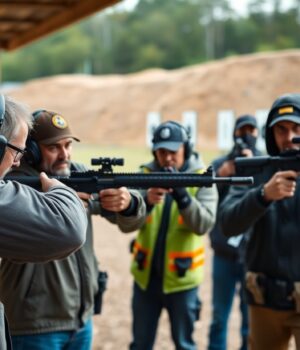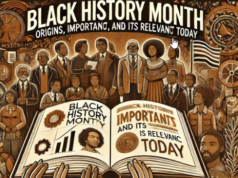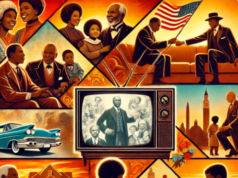With the increasing interest in firearm ownership within the Black community, it is necessary for you to navigate the path toward responsible gun ownership effectively. This guide will provide you with vital information that fosters safe practices, informs you about training programs, and enhances your overall preparedness. Whether you are a first-time owner or looking to improve your skills, empowering yourself with knowledge about regulations, safety protocols, and training opportunities will ensure that your journey is both rewarding and responsible.
Key Takeaways:
- Education: Understanding firearm safety and laws is necessary for all owners to ensure responsible usage.
- Training: Regular practice and professional instruction help develop proficiency and confidence with firearms.
- Community: Engaging with fellow gun owners fosters a supportive environment for sharing knowledge and experiences.
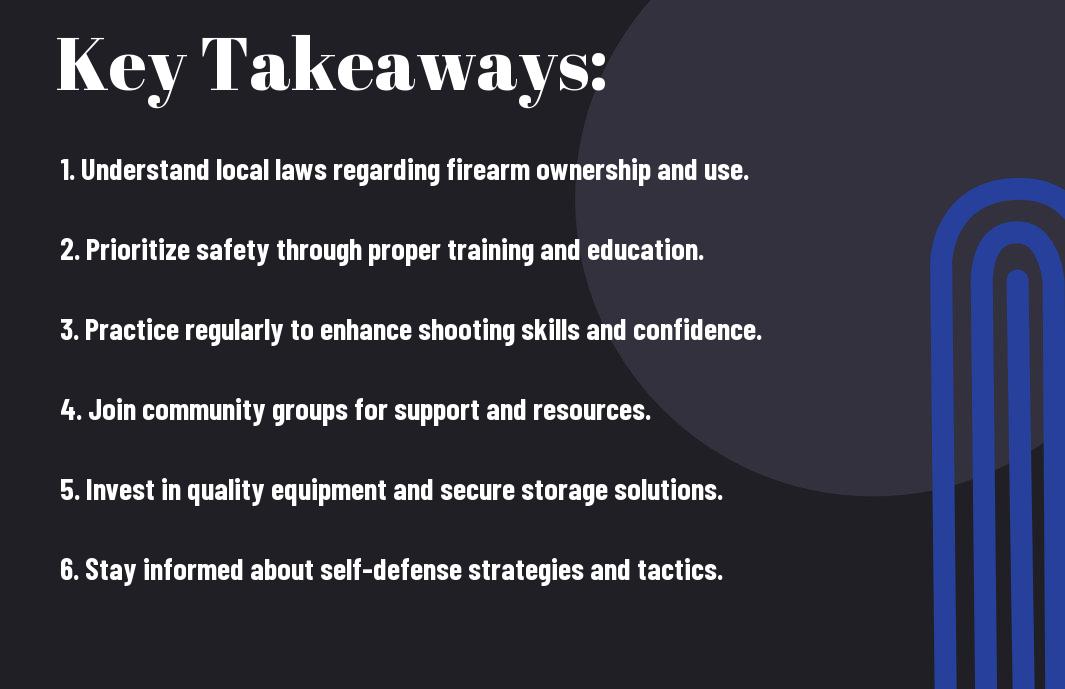
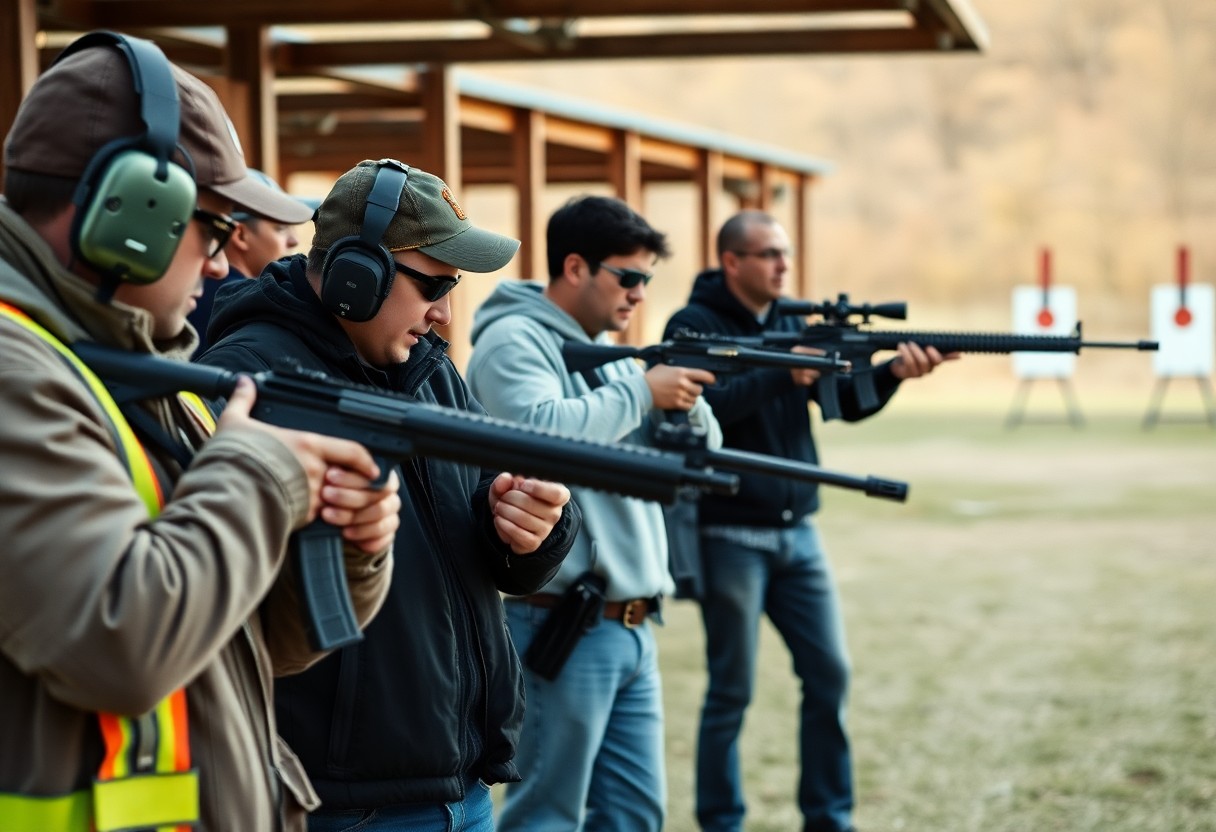
Understanding Black Gun Ownership
As a growing community of responsible firearm owners, Black gun ownership is a vital aspect of self-defense, empowerment, and cultural identity in today’s society. Understanding this landscape will not only enhance your knowledge but also enrich your engagement with the broader dialogue around gun rights and responsibilities.
Historical Context
After centuries of systemic inequalities, the Black community has fought tirelessly for the right to bear arms. This struggle dates back to the post-Civil War era when the need for self-defense against oppression became paramount, paving the way for today’s advocacy and ownership.
Current Statistics and Trends
One notable trend is the increasing number of Black individuals obtaining firearms for personal defense. Recent studies indicate a significant uptick in gun ownership among African Americans, particularly in urban areas, driven by concerns over safety and community empowerment.
But this rise in gun ownership is not just about personal safety; it reflects broader societal changes concerning race and rights in America. Surveys show that many Black gun owners view firearm proficiency as a vital skill that enhances their ability to protect themselves and their families. This trend is reshaping the narrative around gun ownership, highlighting a growing awareness of the importance of responsible training and preparedness within the community.
The Importance of Responsible Firearm Training
Some may underestimate the significance of responsible firearm training, but it is vital for your safety and the safety of those around you. By acquiring the right skills and knowledge, you empower yourself to handle firearms confidently and effectively. Responsible firearm training safeguards against accidents and equips you to respond appropriately in critical situations, reinforcing your commitment to responsible gun ownership.
Safety Protocols
One of the first steps in responsible firearm training is understanding and practicing safety protocols. These include always treating a firearm as if it is loaded, keeping your finger off the trigger until you are ready to shoot, and knowing your target and what lies beyond it. Adhering to these protocols will greatly reduce the risk of accidents and instill safe habits as you engage with firearms.
Skills Development
After establishing safety protocols, the focus shifts to skills development, which is important for becoming a proficient firearm user. You will enhance your ability to handle, aim, and shoot a firearm accurately through practice and structured training programs. This ongoing training not only builds your confidence but also prepares you to react effectively under pressure.
With proper skills development, you’ll gain a deeper understanding of firearm mechanics and improve your marksmanship. Engaging in a variety of drills and scenarios, including target shooting and defensive tactics, helps you adapt to different situations. Joining training classes, participating in workshops, and seeking mentorship from experienced instructors can further refine your abilities. Investing time in skills development also fosters a responsible mindset, ensuring you are prepared for any challenges you may face as a firearm owner.
Choosing the Right Firearm
Despite the wealth of options available, selecting the right firearm is important for effective protection and responsible ownership. Knowing the purpose for your firearm, whether for home defense, competitive shooting, or hunting, will guide your choice. It’s vital to balance personal comfort and safety while making your selection.
Types of Firearms
To help you decide, consider the following types of firearms:
| Pistol | Great for self-defense and easy to carry. |
| Revolver | Simple to operate, reliable, and requires low maintenance. |
| Shotgun | Effective for home defense and hunting larger game. |
| Rifle | Best suited for hunting and target shooting at long distances. |
| Non-lethal options | Consider pepper spray or stun guns for non-lethal self-defense. |
Knowing which type suits your needs will simplify your selection process.
Factors to Consider
Among the many considerations when choosing your firearm, focus on the following aspects:
- Your level of experience and training.
- Intended use—defense, sport, or hunting.
- Comfort with grip and weight.
- Budget for both purchase and maintenance.
- Local laws and regulations regarding firearm ownership.
Thou should weigh these factors carefully to ensure your firearm serves your needs effectively.
Additionally, assessing your personal preferences and lifestyle plays a significant role in your decision. You may prefer a firearm that is lightweight, compact, or features specific safety mechanisms. Considering various designs and capabilities allows you to make a well-informed choice.
- Your personal preferences such as aesthetics and handling.
- Availability of training and resources in your area.
- Possibility of upgrade or resale value.
- Support and community for the specific firearm type.
- The unique challenges of managing your chosen firearm.
Thou must always focus on aligning your choice with your individual needs and circumstances.
Legal Aspects of Gun Ownership
Not understanding the legal aspects of gun ownership can lead to significant complications. It is vital to familiarize yourself with both federal and state laws in your area to ensure that you comply with all regulations surrounding firearm possession and use. This knowledge not only protects you legally but also promotes responsible gun ownership within your community.
Federal and State Laws
Above all, it’s crucial to grasp the distinction between federal laws and state laws regarding gun ownership. Federal laws set baseline regulations that apply nationwide, but state laws can impose stricter rules. Be aware that regulations can vary significantly from one state to another, impacting aspects such as purchasing, carrying, and storing firearms.
Licensing and Permits
Behind each state’s requirements for firearm ownership are the specific licensing and permits you need to secure legally. These requirements may differ widely based on your location and the type of firearm you’re acquiring or carrying.
The process of obtaining the necessary licenses and permits often involves background checks, safety training courses, and sometimes even waiting periods. It is your responsibility to research and fulfill each requirement in your state, as failing to do so may result in legal penalties. Always ensure that you keep your permits up to date and comply with any local regulations, as this commitment enhances both your safety and the safety of those around you.
Community and Support Networks
Unlike the misconception that gun ownership is a solitary journey, you can find numerous community and support networks that foster responsible firearm training and preparedness. Connecting with others who share your goals amplifies your knowledge and enhances your training experience. These networks promote safety, education, and advocacy, empowering you to navigate the complexities of firearm ownership with confidence.
Local Organizations
Along your journey, local organizations play a pivotal role in providing hands-on training, safety courses, and community outreach programs. These groups often host events that allow you to connect with experienced firearm owners and trainers in your area. By participating in activities organized by these organizations, you can improve your skills while building a supportive network.
Online Resources and Forums
Before diving deeper into firearm training, explore online resources and forums that cater specifically to gun owners. These platforms provide a wealth of information and allow you to engage with like-minded individuals who share your interests and experiences.
At these online forums, you can find a vast array of topics ranging from training tips, equipment recommendations, and legal advice to personal anecdotes and success stories. Engaging with these communities not only expands your knowledge but also gives you access to valuable insights and support. Participating in discussions and asking questions can lead to personal growth and a deeper understanding of responsible gun ownership, ensuring that you stay informed and prepared in your journey.
Preparedness Beyond Firearms
Now, understanding that firearm ownership is only one component of personal safety is key to comprehensive preparedness. Building a robust strategy encompasses various layers of security that go beyond simply owning a firearm. By integrating different aspects of preparedness into your lifestyle, you empower yourself to handle any situation that may arise effectively.
Emergency Planning
Beyond your firearm training, having a well-thought-out emergency plan in place is necessary. This plan should outline clear steps for various scenarios, including natural disasters, home invasions, or medical emergencies. Make sure to communicate this plan to your family and practice it regularly to ensure everyone knows their role in times of crisis.
Self-Defense Strategies
Around your firearm ownership, developing effective self-defense strategies is vital for enhancing your personal safety. This includes not only physical techniques but also mental preparedness and situational awareness. The more you equip yourself with skills and knowledge, the better prepared you’ll be to confront threats when they arise.
Understanding self-defense strategies means recognizing that your safety often begins with awareness of your surroundings. You should learn techniques such as de-escalation, verbal self-defense, and physical methods that do not involve a firearm, such as martial arts. Regular practice of these skills, combined with your firearm training, creates a comprehensive approach to personal security. Always seek professional guidance and training to refine these strategies and ensure you can confidently protect yourself in any situation.
Final Words
With this in mind, your journey into black gun ownership should empower you with knowledge and skills that foster safety and preparedness. Embracing responsible firearm training not only enhances your confidence but also contributes to a broader understanding of rights and responsibilities. By prioritizing education, practicing regularly, and engaging with your community, you ensure that you are fully equipped to handle your firearm responsibly. Trust yourself to make informed decisions and advocate for safe practices within your circles, as you navigate this vital aspect of personal security.
Q: Why is responsible firearm training important for black gun owners?
A: Responsible firearm training is crucial for all gun owners, but it holds particular significance for black gun owners due to historical contexts and societal dynamics. It equips individuals with the knowledge and skills necessary to handle firearms safely and effectively, promoting personal safety and community awareness. Furthermore, being well-trained can help mitigate misunderstandings or negative perceptions that might arise in interactions with law enforcement or the public when a firearm is involved.
Q: What are some recommended resources for firearm training?
A: There are numerous resources available for firearm training, including local shooting ranges that offer courses, training clinics, and workshops. National organizations such as the National African American Gun Association (NAAGA) provide specialized training programs tailored to the needs of black gun owners. Additionally, online platforms and videos can serve as supplemental education, but it is always advisable to prioritize hands-on training with certified instructors whenever possible.
Q: How can I prepare for emergencies while ensuring firearms are stored safely?
A: Preparing for emergencies involves both mental preparedness and practical measures. Start by creating a detailed emergency plan that includes protocols for different scenarios, such as home invasions or natural disasters. For firearm storage, it’s vital to invest in secure safes or locks that can deter unauthorized access while allowing you quick access in an emergency. Additionally, regularly reviewing your safety plan and practicing safe handling techniques will ensure you are ready to respond effectively, should the need arise.


